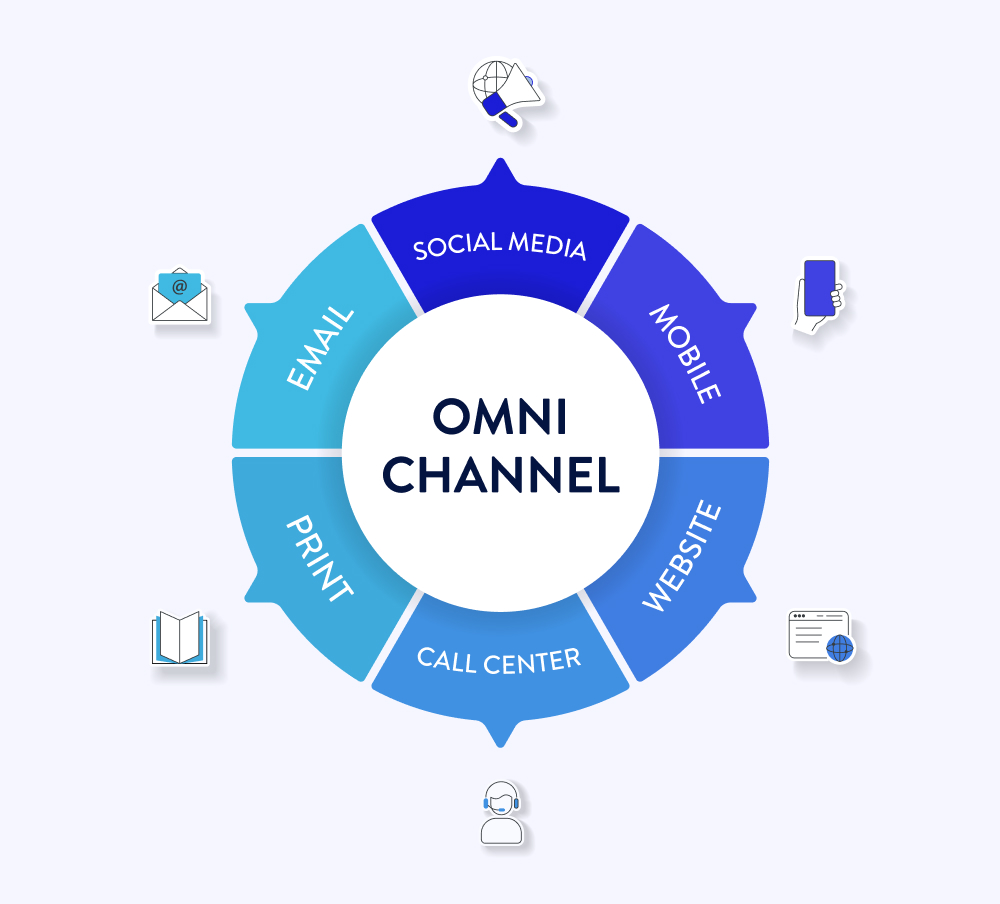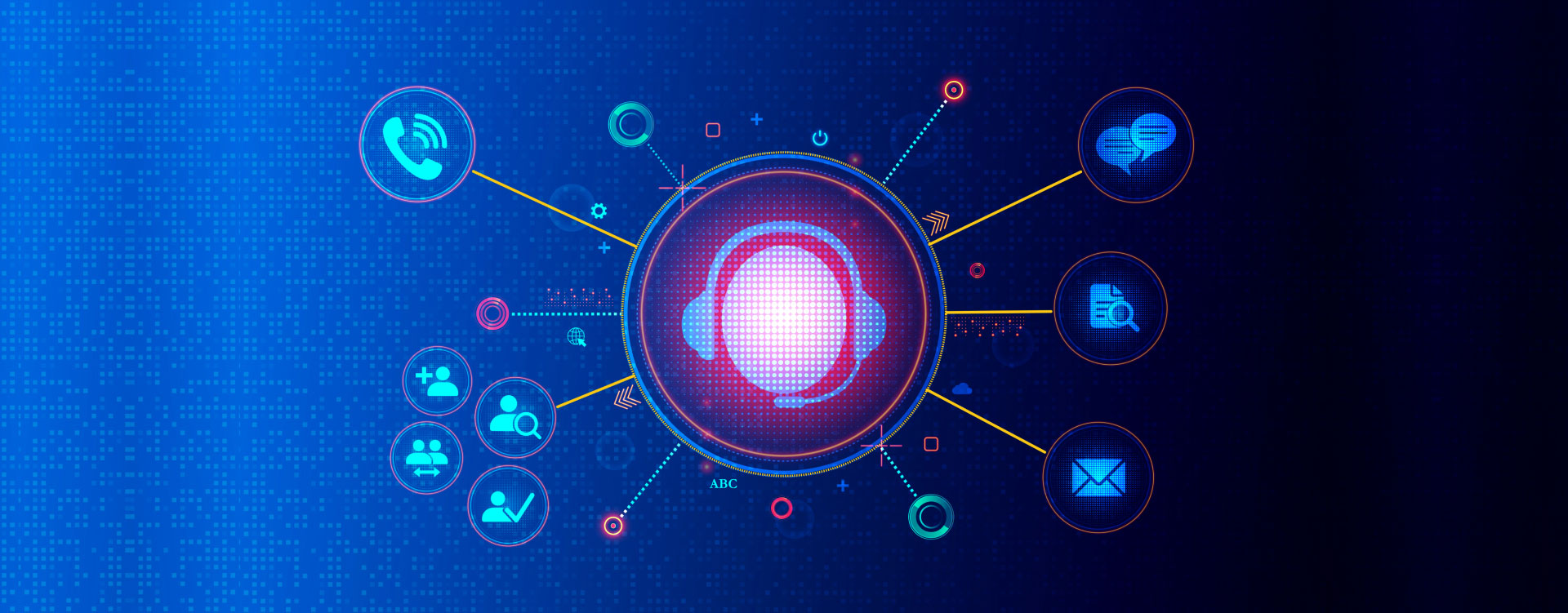Customer satisfaction is no longer a mere aspiration.
It’s the lifeblood of modern business.
In the era of referrals and branding, call centers have emerged as a critical component for businesses to win hearts.
With increasing customer expectations and technological advancements, maintaining your call center’s quality becomes a mandate.
To fulfil this objective, call center managers must radically shift their perspective and embrace a quality-centric approach.
This blog delves into the challenges and opportunities ahead, creating a blueprint for managers to elevate their call center’s performance.
Understanding the Call Center Ecosystem
To navigate a call center delivering exceptional customer experiences we must first understand the intricate ecosystem in which it operates. A call center software is a dynamic hub managing interactions between you and your customers. Traditionally they are categorized into inbound and outbound operations and are morphing into complex entities handling an increasing array of customer touchpoints.
Inbound Call Centers
Inbound call centers are reactive, fielding incoming calls, emails, or chats. Customers make calls to inbound call centers for numerous reasons like payments, technical support, appointment booking etc. With evolving inbound call center software, customer expectations continue to rise too, pushing agents to become prompter with their responses.
Outbound Call Centers
Outbound call centers specialize in proactive communication, sales outreach, surveys, revenue collection and similar ops. Running an outbound call center gets simplified as outbound call center software provides easier access to critical contact information on any device. It also enables agents to swiftly collaborate with team members remotely.
Rise of Omnichannel Call Centers
Despite the binary distinction, inbound and outbound call centers are gradually shifting towards delivering seamless omnichannel experiences. Businesses continue to integrate phone calls, emails, SMS, and messaging channels like WhatsApp into a single platform for a unified customer journey.
By monitoring every customer interaction, from first touch point to post-purchase support, you can gain invaluable insights into the client’s challenges and opportunities. This granular understanding empowers you to optimize your call center operations, anticipate customer needs, and deliver tailored experiences.
Ultimately, the efficacy of your call center is measured by its impact on the bottom line. Robust suite of metrics and KPIs is essential to gauge performance. Metrics such as average handling time, first call resolution, CSAT scores, and agent turnover provide critical data points for identifying trends, measuring efficiency, and driving improvement.

Challenges Call Center Managers Face with Operation Optimization
When it comes to monitoring and analyzing call center performance, supervisors play a pivotal role here. However, they often face a series of challenges that impact agent morale, productivity, and overall customer satisfaction.
Here are some of the most common challenges that call center managers face:
Agent Performance Management
Managing agent performance is a complex task that requires a delicate balance. You must provide consistent coaching and feedback to help your teams improve their skills and knowledge. Simultaneously, you need to set clear performance expectations and hold agents accountable for meeting those goals.
Workload Balancing
Ensuring a systemic call distribution and tasks among agents is crucial for maintaining job satisfaction and minimizing burnout. You can consider factors such as agent skill sets, experience levels, and call complexity when assigning work. Implementing fair and transparent workload allocation processes can help prevent resentment and improve overall team performance.
Adhering to Scripts and Procedures
Maintaining consistent quality standards is essential for delivering exceptional customer experiences. Adherence to scripts and procedures is crucial for ensuring that all customers receive accurate and consistent information. However, rigidly following procedures can stifle agent creativity and problem-solving abilities. Striking a balance between compliance and flexibility is key to empowering agents while maintaining quality standards.
Customer Escalations
Handling agitated customers is a challenging task for any call center agent. Supervisors must equip agents with the necessary tools and training to de-escalate tense situations. Creating a supportive environment where your agents can feel empowered to handle difficult customers is crucial for preventing burnout and maintaining job satisfaction.
Team Morale and Burnout
Building a positive and supportive work environment is crucial for fostering high employee engagement and productivity. You must recognize and appreciate team contributions and provide opportunities for growth and development. Implementing wellness programs and providing access to mental health resources can also help you support agent well-being.
Real-time Monitoring and Intervention
Effective supervision requires the ability to monitor agent performance with scrutiny in real-time and provide prompt support. Using call monitoring tools to identify trends and patterns in customer interactions can help you identify areas for improvement. However, it is essential to avoid micromanagement and to focus on providing coaching and support rather than simply issuing corrections.
Current Trends Shaping the Industry
- Increased Customer Expectations: Customers now demand faster response times, personalized service, and seamless experiences across multiple channels. Call centers must adapt to meet these elevated standards.
- Omnichannel Contact Centers: More than 75% of call centers are switching to multiple channel interactions such as voice, video, SMS, email and messaging like WhatsApp.
- Employee Experience: Prioritizing agent well-being and job satisfaction is crucial for boosting morale, reducing turnover, and improving overall performance.
Emerging Trends to Watch
- AI and Machine Learning: These technologies will revolutionize call centers by automating routine tasks, enabling predictive analytics, and personalizing customer interactions.
- Analytics and Big Data: Leveraging data-driven insights will be essential for optimizing operations, identifying trends, and making informed decisions.
- Remote and Hybrid Workforces: The trend towards remote work is accelerating, requiring call centers to adapt their management strategies and infrastructure.
- Customer Self-Service: Empowering customers to resolve issues independently through online resources and automation will become increasingly important.
- Security and Fraud Prevention: As cyber threats continue to evolve; call centers must strengthen their security measures to protect customer data and prevent fraudulent activities.
Bottom Line
Effective call center management demands a strategic balance of human capital, technological infrastructure, and customer satisfaction. Prioritizing customer experience, investing in agent development, leveraging data-driven insights, and fostering a positive work culture are essential components of successful call center operations. The right contact center software or call center software can streamline processes and enhance overall business communication.














